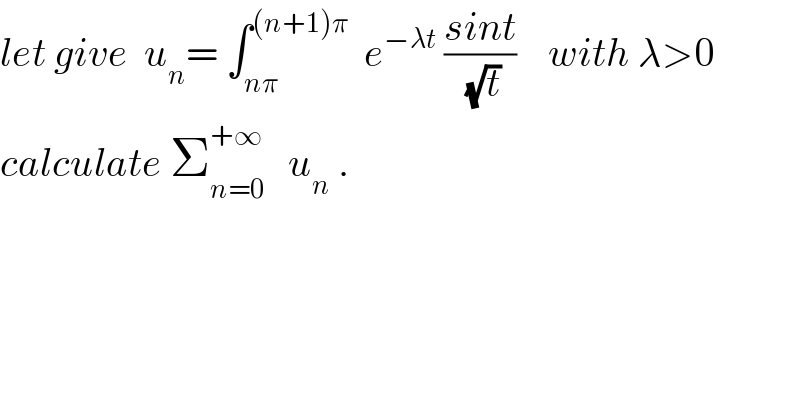
Question and Answers Forum
Question Number 28676 by abdo imad last updated on 28/Jan/18

Commented byabdo imad last updated on 30/Jan/18

| ||
Question and Answers Forum | ||
Question Number 28676 by abdo imad last updated on 28/Jan/18 | ||
 | ||
Commented byabdo imad last updated on 30/Jan/18 | ||
 | ||